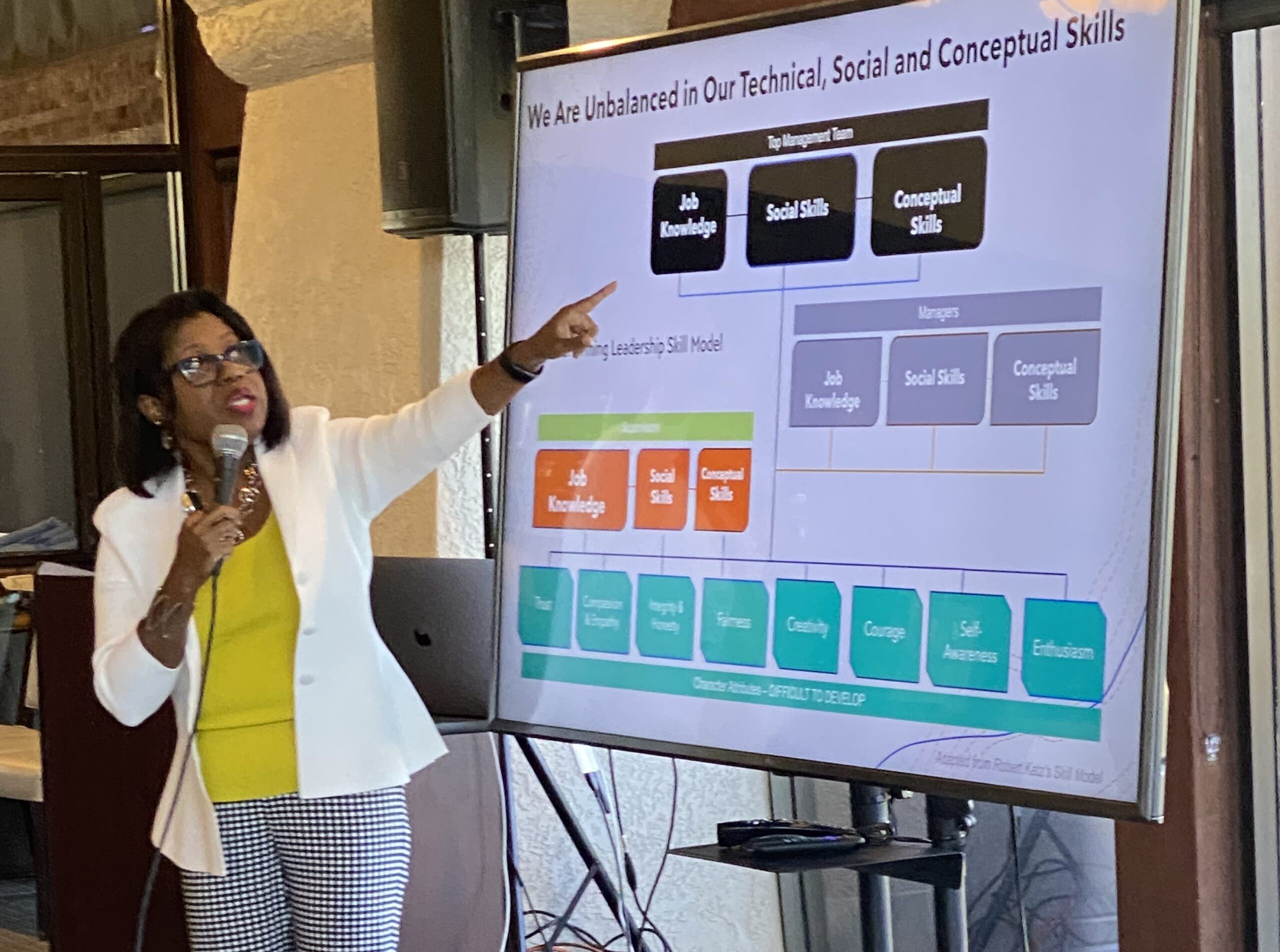Leadership requires development
It necessitates a new way of thinking, behaving, and engaging with others. This is where the person being promoted and the ones who have recognized their potential can become disconnected and disillusioned. While many would like to think it’s as simple as sending the newly minted leader to an off-site training, and they will return with all the know-how and self-awareness needed to do an amazing job, it’s not that simple.
The “a-ha!” moment
Hard skills that are teachable and measurable are important. But, as you move further up the leadership scale, greater emphasis must be placed on soft skills, which take time to develop. In speaking with a group of C-Suite executives preparing junior leaders for the next level, their “a-ha!” moment came when I said, “Your job is to harness the hard skills. Help them think on the next level. What behaviors do they need to adopt and exhibit to be seen as more credible and authentic as leaders who can work through others to get things done?”
It won’t happen overnight
New leaders might not be 100% comfortable in their new role. It will take time for them to grow into their new leadership skin. They may resort to a more authoritative leadership style, like micromanaging, because they are used to being judged based on performance.
Coach through bad habits
Coaching new leaders through this transition period is key. Reassure them that a more nuanced approach to building relationships and engaging with people will have a better result and positively influence performance.
Senior leaders who get in the habit of coaching others can produce leaders who do the same. Before long, you’ll experience the benefit of what it means to be in a learning organization.



